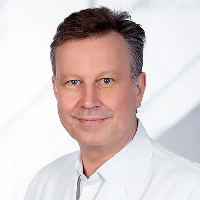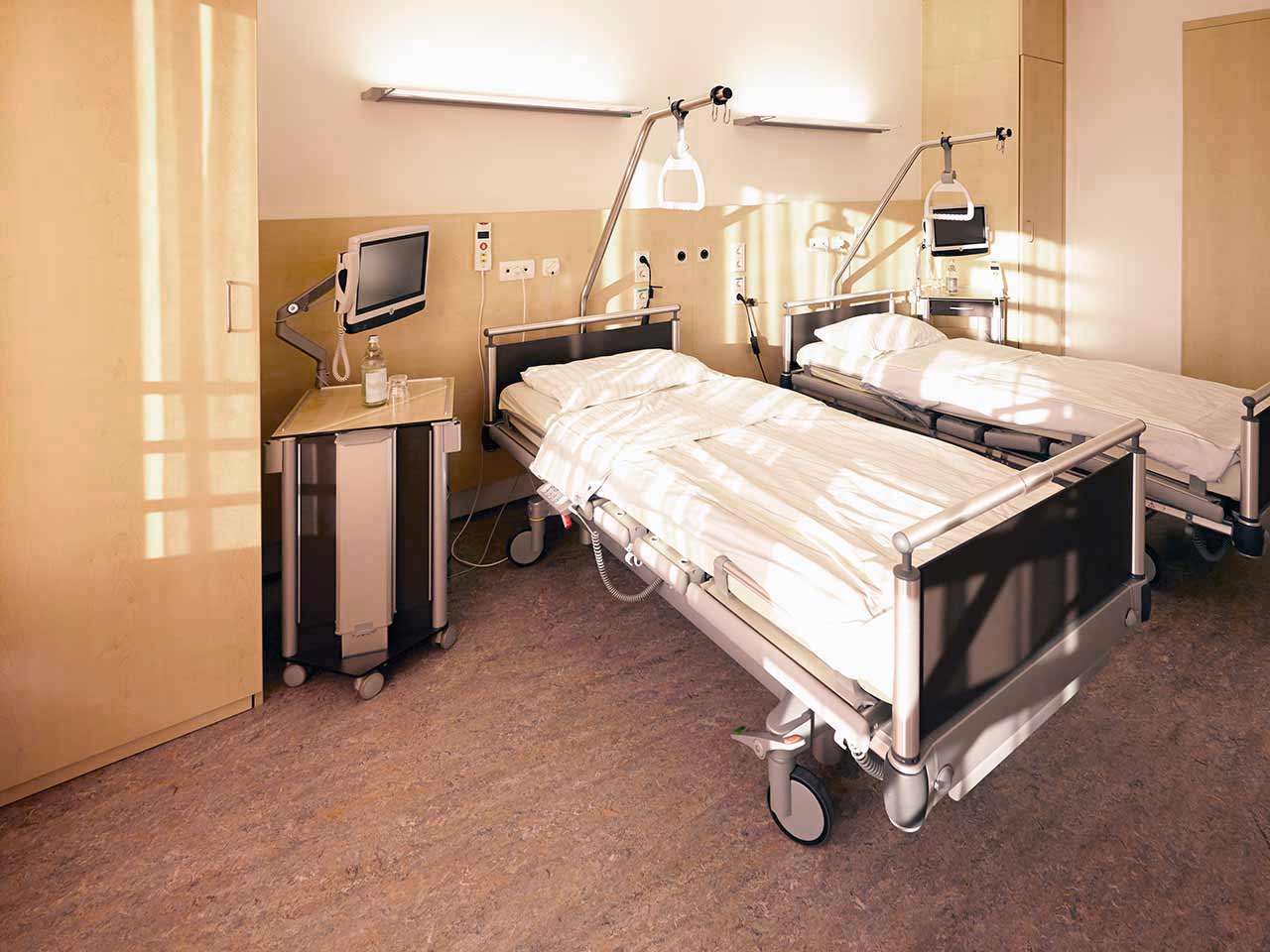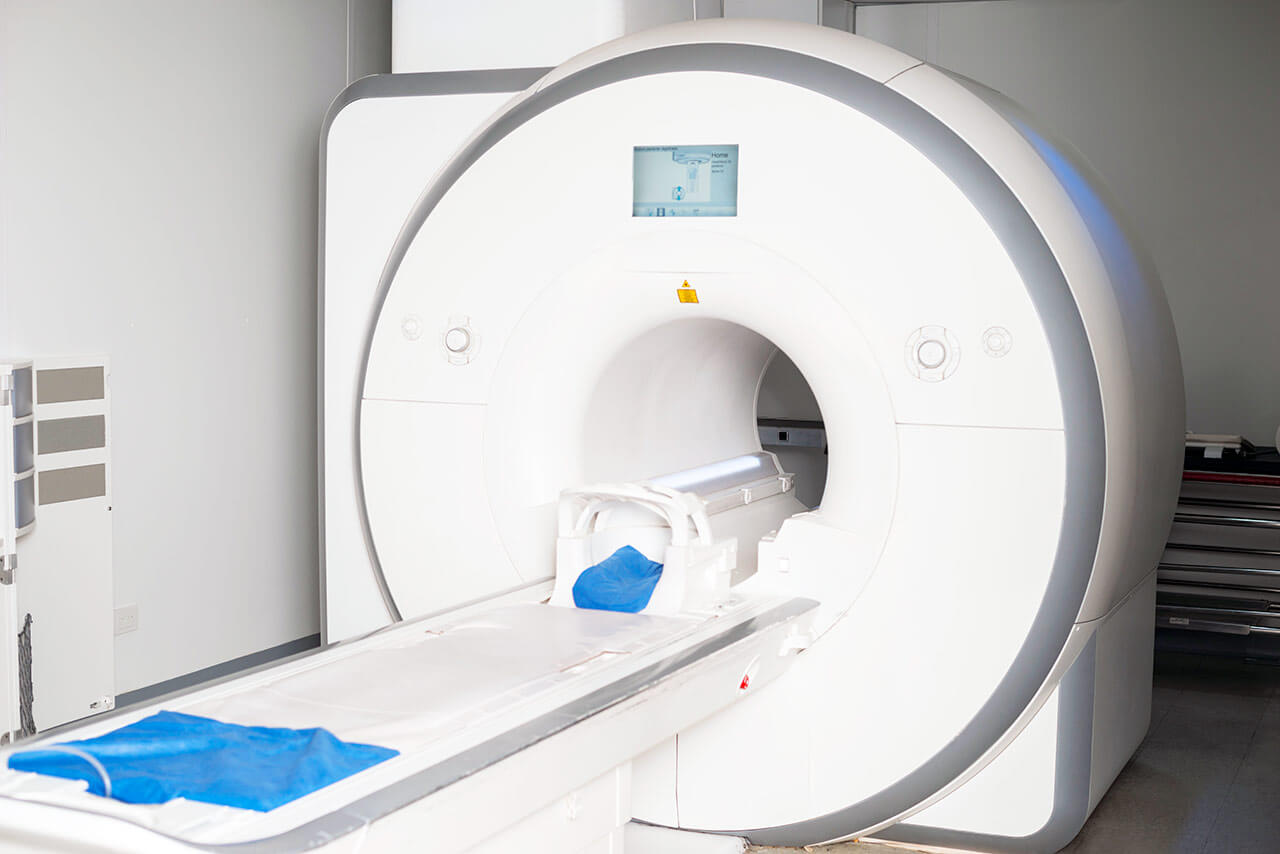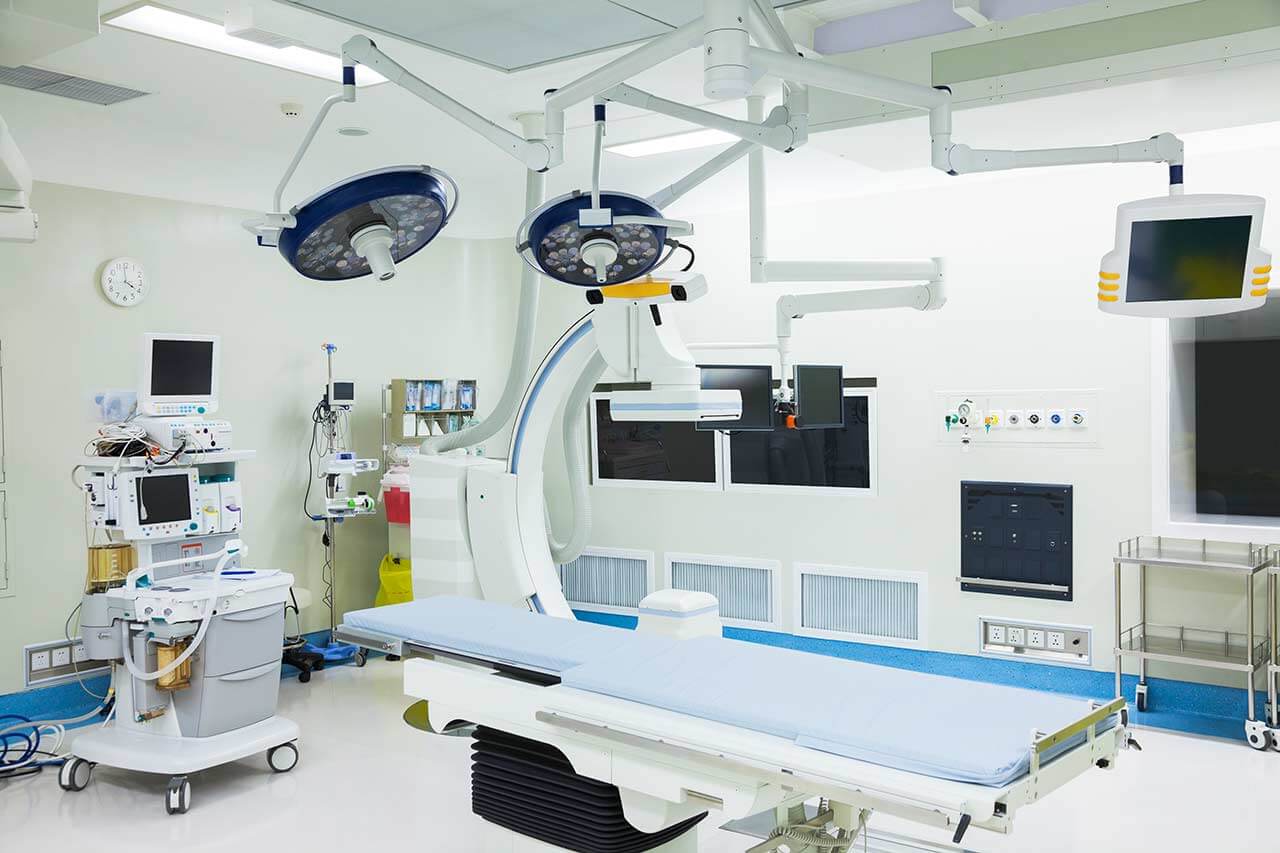
The program includes:
- Initial presentation in the clinic
- clinical history taking
- review of medical records
- physical examination
- dermatological examination
- anesthesia
- treatment with dye pulsed laser therapy
- nursing services
- services of all leading experts
- explanation of individual treatment plan
Required documents
- Medical records
Service
You may also book:
 BookingHealth Price from:
BookingHealth Price from:
About the department
The Department of Dermatology and Allergology at the Nuremberg Hospital offers the full range of medical services in the fields of its competence and specializes in the treatment of skin diseases. The treatment of skin cancer and skin allergies is a priority in the department's clinical practice. The dermatologists at the medical facility successfully treat inflammatory and infectious skin diseases as well as chronic non-healing wounds. The department has three state-of-the-art operating rooms where over 2,500 surgical interventions are performed every year. A significant number of surgical interventions are performed to treat basalioma, squamous cell skin cancer, and melanoma. When planning surgery, the department's specialists strive to achieve a good therapeutic result while considering an aesthetic aspect. The department also has advanced laser systems and photodynamic therapy devices. The health of patients is in the safe hands of a large medical team, consisting of 19 highly specialized doctors and over 40 nursing staff members. The department admits more than 11,000 patients annually, with about 8,000 of these patients receiving medical care on an outpatient basis. All medical services comply with the requirements of professional medical associations and the standards of modern medicine. The department is headed by Prof. Dr. med. Erwin Schultz.
The department has the status of being one of the best German medical facilities specializing in skin cancer treatment. Malignant skin tumors are treated at a specialized center certified according to the requirements of the German Cancer Aid (Deutsche Krebshilfe). All resources are available here for an accurate diagnosis and effective treatment of basaliomas, squamous cell carcinoma, and melanomas. If skin cancer is confirmed during the preliminary screening, the patient's case is considered during an interdisciplinary tumor board, after which an optimal treatment regimen is elaborated. The main treatment for skin tumors is their removal. Depending on the size of the tumor and the stage of the oncological process, the department's dermatologists may perform surgical tumor excision, electroexcision, laser destruction, or cryotherapy. Photodynamic therapy and laser procedures using a modern CO2 Fraxel device are successfully used in the department to remove superficial skin neoplasms and treat precancerous lesions. The department's dermatologists strive to achieve a satisfactory aesthetic result, so tumor removal surgery may be complemented by reconstructive surgery whenever required.
The department's team of dermatologists is highly professional in the treatment of chronic inflammatory skin diseases, the most common of which are neurodermatitis (atopic dermatitis) and psoriasis. In cases of mild forms of these diseases, the department's doctors prescribe anti-inflammatory ointments and creams for daily skin care. The second-line treatment involves the impact of ultraviolet radiation on the affected skin areas using special lamps. The intake of pills aimed at systemic suppression of the inflammatory process in the body is indicated for patients with a complex course of chronic inflammatory dermatosis.
Patients with infectious skin diseases can receive medical care in the medical facility. The department's doctors treat bacterial skin infections (rosacea, impetigo contagiosa, and Lyme disease), viral infections (herpes zoster and varicella), fungal skin infections, sexually transmitted infections, and tropical infections. Successful treatment of the above-mentioned diseases largely depends on precise microbiological diagnostics, for which the department has the necessary laboratory facilities. The department's doctors use topical ointments and creams, as well as various groups of drugs, to treat infectious skin lesions.
Allergology occupies an important place in the department's clinical practice as well. Allergies are treated in close cooperation with the Nuremberg Interdisciplinary Allergy Center (NIZA). The team of the department's doctors treats allergies to drugs and insect venom, food intolerances, contact dermatitis, hay fever, and occupational allergies. The department's specialists have a wide range of possibilities for detecting allergic reactions, including epicutaneous and intracutaneous tests, prick tests, photopatch tests, provocation tests, etc. The main method of allergy treatment in the department is allergen-specific immunotherapy (hyposensitization), which aims at reducing the immune response to the substances that cause the allergy.
The department specializes in the diagnostics and treatment of the following diseases:
- Dermatology
- Skin cancer
- Basalioma
- Squamous cell carcinoma
- Melanoma
- Precancerous skin conditions
- Benign skin tumors
- Chronic inflammatory skin diseases
- Neurodermitis (atopic dermatitis)
- Psoriasis
- Infectious skin lesions
- Bacterial infections
- Rosacea, impetigo contagiosa, and Lyme disease
- Viral infections
- Herpes zoster
- Varicella
- Fungal skin lesions
- Sexually transmitted infections
- Tropical infections
- Chronic non-healing wounds
- Bacterial infections
- Skin cancer
- Allergology
- Wasp and bee venom allergy
- Food intolerance
- Drug allergy
- Occupational allergies (for example, hand eczema)
- Hay fever
- Contact dermatitis
- Hives
- Pseudoallergies
- Other diseases
The department's therapeutic options include:
- Dermatology
- Skin cancer treatment
- Surgical tumor excision
- Electroexcision
- Laser destruction
- Cryotherapy
- Photodynamic therapy and laser procedures using CO2 Fraxel device for treating superficial tumors and precancerous skin conditions
- Treatment of chronic inflammatory skin diseases
- Local therapy with anti-inflammatory ointments and creams
- Drug therapy with pills
- UV therapy
- Treatment of infectious skin lesions
- Local therapy with anti-inflammatory ointments and creams
- Drug therapy with pills
- Treatment of chronic non-healing wounds
- Debridement
- Treatment with antibacterial wound dressings
- Plasma therapy
- Low-level laser therapy
- Skin cancer treatment
- Allergology
- Local therapy with ointments and creams
- Drug therapy with pills
- Allergen-specific immunotherapy (hyposensitization)
- Other medical services
Curriculum vitae
Higher Education and Professional Career
- 2014 Professorship at the Paracelsus Private Medical University of Salzburg.
- 2012 Extraordinary Professorship at the Friedrich-Alexander University of Erlangen-Nuremberg.
- Since 2008 Head Physician of the Department of Dermatology and Allergology at the Nuremberg Hospital.
- 2005 - 2008 Managing Senior Physician and Deputy Head of the Department of Dermatology at the University Hospital Marburg.
- 2005 Invitation to the Position of Professor of Dermatology at the University of Marburg.
- 2002 - 2005 Senior Physician in the Department of Dermatology at the University Hospital Erlangen.
- 2005 Additional qualification in Tumor Drug Therapy.
- 2004 Certification in Occupational Dermatology by the Working Group on Dermatology.
- 2002 Habilitation in Dermatology, Friedrich-Alexander University of Erlangen-Nuremberg. Subject: "Principles of active immunotherapy for malignant melanoma".
- 2002 Additional qualification in Allergology.
- 2001 Instructor for Ultrasound Diagnostics of Skin and Subcutaneous Fat Pathologies.
- 2000 - 2005 Quality Management in the Department of Dermatology at the University Hospital Erlangen (implementation of a quality management system and follow-up certification according to ISO 9001:2000 standards).
- 1998 - 2000 Scholarship from the German Research Foundation, Research Fellow at the Ludwig Institute for Cancer Research, Brussels, Belgium (laboratory of Prof. Pierre van der Bruggen), research focus: Cancer Immunotherapy.
- 1998 Board certification in Dermatology and Venereology.
- 1994 Doctoral Degree, University of Wuerzburg. Subject: "Interleukin-2 and interferon-alpha in the treatment of malignant melanoma".
- 1994 Admission to medical practice.
- 1987 - 1993 Medical studies at the University of Wuerzburg.
Clinical Focuses
- Dermatologic oncology and dermatologic surgery.
- Treatment for chronic wounds and diabetic foot syndrome.
- Treatment for chronic inflammatory skin diseases (neurodermatitis and psoriasis).
- Treatment of autoimmune skin diseases.
- Allergology and occupational dermatology.
Research Focuses
- Immunology for tumors.
- Immunotherapy for malignant melanoma.
Expert Career
- Boehringer Ingelheim Foundation.
- German Research Foundation.
- German Cancer Aid.
- Dutch Digestive Foundation.
- Anniversary Fund of the Austrian National Bank.
- Wilhelm Sander Foundation.
Memberships in Professional Societies
- German Society of Dermatological Research (ADF).
- Working Group on Dermatological Oncology (ADO).
- German Dermatological Society (DDG).
- German Cancer Society (DKG).
- European Organisation for Research and Treatment of Cancer (EORTC).
- Society for Immunotherapy of Cancer (SITC).
- German Society for Allergology and Clinical Immunology (DGAKI).
Photo of the doctor: (c) Klinikum Nürnberg
About hospital
According to the reputable Focus magazine, the Nuremberg Hospital ranks among the top German medical facilities!
The hospital is one of the largest, highly specialized medical centers in Europe and positions itself as the maximum care hospital. The healthcare facility is an academic hospital of the Paracelsus Medical University in Nuremberg. It houses 42 departments, institutes, and highly specialized centers focusing on various medical fields. All the hospital's employees work hand in hand for the benefit of their patients. The specialists strive to provide top-class medical care for every patient. Moreover, the medical team always shows a humane attitude and understanding towards the patient's life situation, making every effort to support them during the entire therapeutic process.
The total number of beds in the hospital is 2,233. The medical team consists of more than 8,400 employees, including many world-famous doctors and professors who had their clinical training at the best medical facilities in Germany, other European countries, and the USA. The hospital admits more than 100,000 inpatients and more than 170,000 outpatients annually. The number of patients who come to the hospital steadily increases every year, which is the best confirmation of its high standards and outstanding treatment results.
The cornerstone of successful clinical practice is state-of-the-art technical infrastructure. The hospital offers its patients innovative technologies such as the Da Vinci surgical system, devices for stereotactic procedures, intraoperative radiation therapy, angiography, PET CT devices, high-intensity focused ultrasound, 64-slice CT scanners, and other advanced medical devices. The combination of cutting-edge technical facilities and the high competence of the physicians allows for the provision of effective treatment even in the most complex cases.
The Nuremberg Hospital is undoubtedly one of Germany's leading medical facilities, where patients benefit from modern infrastructure, precise diagnostics, effective treatment, and responsive care.
Photo: (с) depositphotos
Accommodation in hospital
Patients rooms
The patients at the Nuremberg Hospital live in comfortable single and double rooms. Each patient room is equipped with an ensuite bathroom with a shower and a toilet. Standard rooms include an automatically adjustable bed, a bedside table, a wardrobe for storing clothes, a table and chairs for receiving visitors, a TV, and a radio. The hospital also offers Wi-Fi.
If desired, patients can live in enhanced-comfort rooms. Such patient rooms are more spacious, and their furnishings correspond to the level of an upscale hotel.
Meals and Menus
The patients at the hospital are offered tasty and balanced meals three times a day: breakfast, lunch, and dinner. The patients have a daily choice of three dishes for lunch and dinner, while breakfast is served as a buffet.
If, for some reason, you do not eat all foods, you will be offered an individual menu. Please inform the medical staff about your food preferences prior to treatment.
Further details
Standard rooms include:
Accompanying person
Your accompanying person may stay with you in your patient room or at the hotel of your choice during the inpatient program.
Hotel
You may stay at the hotel of your choice during the outpatient program. Our managers will support you for selecting the best option.





